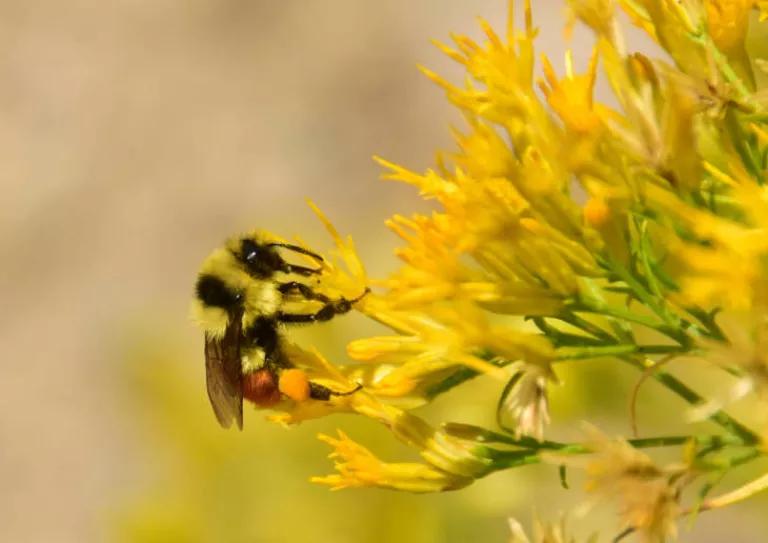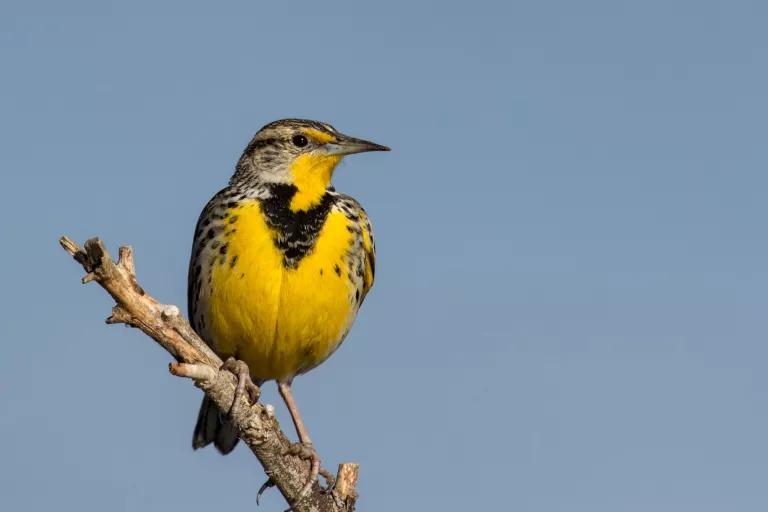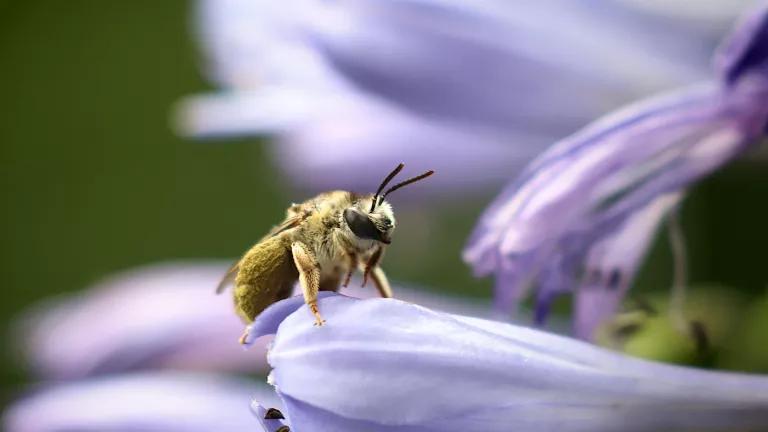Californians Overwhelmingly Favor Curbing Neonic Pesticides
Legislators can protect California from these dangerous pesticides by passing AB 2146, a bill authored by Assemblymember Rebecca Bauer-Kahan.

People at a park in Laguna Beach, South Orange County, California. Urban waters in areas of southern California, like Orange County, are heavily contaminated with neonics.
A whopping 77 percent of Californians support prohibiting lawn and garden uses of harmful neonicotinoid pesticides, or “neonics,” according to a new poll conducted for NRDC by FM3 Research. AB 2146, a bill by Assemblymember Rebecca Bauer-Kahan, would do just that—and would make California the first western state to prohibit most non-agricultural uses of these insecticides that kill pollinators, contaminate waters statewide, and pose risks to human health. Californians have less than a month to make their voice heard and ensure this bill passes the legislature and lands on the governor’s desk.
The Many Risks of Neonics
Californians have good reason to support restrictions on neonics, a class of neurotoxic insecticides first introduced in the mid-1990s. A mountain of scientific research identifies neonics as a lead cause of massive honey bee colony losses over the past two decades, which accelerated rapidly as neonic use skyrocketed in the mid-2000s.
But neonics don’t just harm honey bees. Evidence suggests honey bees are only the canary in the coalmine for California’s 1,600 species of native bees, which represent about 40 percent of all native bee species in North America. These bees, as well as other pollinators and insect species, are also disappearing at alarming rates in a phenomenon some have dubbed the “Insect Apocalypse.”
The loss of pollinators may have grave implications for California’s—and the world’s—agricultural production. Pollinators are responsible for about one in three bites of food that we eat, and are critical to producing 70 of the worlds top 100 crops. With the recent losses of bees and other pollinators in the U.S., some crops are already “pollinator-limited,” meaning fewer pollinators leads to lower production of those crops. That, in turn, means reduced access to healthy, affordable fruits and vegetables for families.

A Hunt's bumble bee, one of 1600 native bee species in California, collecting pollen and nectar from a flower. Wild bees are critical pollinators of many flowering plants, including important crops.
Neonics’ widespread use is also linked with alarming declines in bird populations nationwide, the collapse of aquatic ecosystems, and serious harms to human health. Monitoring by the Centers for Disease Control and Prevention shows that on any given day, about half of Americans are exposed to a neonic. This exposure may put people at increased risk of developmental, reproductive, and neurological harms.
Californians agree: neonics must be reined in
In today’s polarized world, people rarely seem to agree on anything. But given neonics’ widespread harms—to people, agriculture, and ecosystems—perhaps it’s not surprising that people from all walks of life support common-sense restrictions on their use. Again, 77% of Californians polled support a prohibition on lawn and garden uses of neonics, with over half of people “strongly” supporting the policy. Support for restrictions is especially strong among women, 82% of whom oppose use on lawns and gardens.
Support for neonic restrictions, like those in AB 2146, extends across party and ideological lines. Well over half of self-identified conservative Republicans, as well as independents and Democrats, supported prohibiting harmful non-agricultural uses of neonics.
This broad support for neonic restrictions is no anomaly. A New York poll found similarly widespread, strong support for a similar policy just last year.

Widespread neonic use is contributing to losses of grassland and insectivorous bird species, like this western meadowlark.
AB 2146 provides a common-sense path forward
AB 2146 would prohibit most outdoor, non-agricultural uses of neonics. These include widespread uses on lawns, gardens, golf courses, parks, and other urban and suburban spaces, but exclude more targeted uses against harmful invasive species.
While many don’t think of their lawns and gardens as bee-killers, research shows that use of neonics on ornamental plants is often the most devastating, with ornamental plants responsible for some of the largest reported bee kills. Non-agricultural areas also pollute water supplies in the areas where millions of Californians live, with state testing showing widespread contamination in the state’s most populated urban and suburban areas. While the state Department of Pesticide Regulation (DPR) has proposed regulations that would slash neonic use in agriculture by 45 percent, those regulations do not address non-agricultural uses at all, meaning it is up to the legislature to rein in these unnecessary and harmful uses.
AB 2146 has already passed through the State Assembly and advanced out of the Senate Environmental Quality Committee. It now awaits a vote in Senate Appropriations. If you live in California, click here to contact your Senator and urge them to vote YES on this critical bill!




